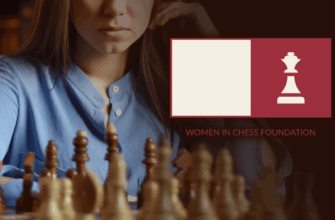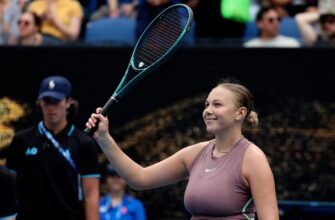China`s premier multi-sport event, the 15th National Games of the People`s Republic of China, recently concluded its chess competition in Shenzhen, showcasing the nation`s unparalleled depth of talent in the strategic game. Over five days, the country`s brightest chess minds converged, delivering a spectacle of skill, tension, and unexpected turns. When the dust settled, two names stood out above the rest: Grandmasters Wang Hao and Hou Yifan, who triumphed in the Open and Women`s sections, respectively. Adding to the glory, the Jiangsu team clinched the coveted team event gold, solidifying their status as a formidable collective.
A Gathering of Grandmasters: The Pinnacle of Chinese Chess
The significance of the National Games in China cannot be overstated. Held quadrennially, it represents the highest echelon of domestic sporting achievement. For chess, this meant drawing an assembly of champions whose reputations extend far beyond national borders. The Open section alone featured luminaries such as former World Champions Ding Liren and Wei Yi, alongside top-ranked Grandmaster Yu Yangyi. The Women`s section was equally star-studded, boasting current Women`s World Champion Ju Wenjun, the prodigious Hou Yifan herself, and formidable contenders like Lei Tingjie and Zhu Jiner.
This stellar lineup transformed the competition into a microcosm of world-class chess, where every move was scrutinized, and every victory hard-won. The stakes were high, with national pride and individual accolades hanging in the balance, creating an atmosphere charged with intellectual intensity.
Tournament Dynamics: Rapid Play and Strategic Showdowns
The chess competition adopted a dynamic format to ensure both rigorous testing and spectator engagement. Players navigated a two-stage structure: an initial round-robin preliminary stage, followed by high-stakes semifinals and finals contested by the top four performers. Adding to the pressure, the time control was a rapid 25 minutes plus a 10-second increment per move, demanding quick calculations and decisive decision-making. This faster pace often introduces an element of unpredictability, where even the slightest miscalculation can unravel a meticulously crafted position.
The Open Section: Wang Hao`s Resilient Ascent
The Open section delivered its fair share of drama. While top seeds were expected to dominate, the preliminary stage provided an early “minor sensation” as the seventh-seed Xu Yinglun defied expectations, securing a semifinal berth over higher-rated players like Yu Yangyi and Lu Shanglei. This early upset underscored the depth of talent and the `anything can happen` spirit of the Games.
The semifinals pitted Wang Hao against Xu Yinglun, and Ding Liren against Xu Xiangyu. Both encounters were fiercely contested, ultimately decided by tiebreaks – a true test of nerves and rapid chess prowess. Wang Hao emerged victorious from his grueling semifinal, earning his spot in the final. On the other side of the bracket, Xu Xiangyu overcame Ding Liren in another nail-biting finish.
The final clash between Wang Hao and Xu Xiangyu was a battle of wits that also extended to tiebreakers. Demonstrating exceptional composure and strategic depth, Wang Hao ultimately captured the coveted gold medal. Meanwhile, the reigning World Champion, Ding Liren, showcased his enduring class by defeating Xu Yinglun to secure the bronze medal, a testament to his fighting spirit even after a tough semifinal exit.
Women`s Section: Hou Yifan`s Unchallenged Authority
In the Women`s section, the world-renowned Grandmaster Hou Yifan lived up to her reputation, demonstrating a commanding performance throughout the tournament. Her victory was a powerful reminder of her enduring influence and skill in women`s chess, even amidst a field brimming with formidable opponents. While the specific details of her path to victory were not as extensively detailed in the initial report, her triumph against such strong opposition, including the current Women`s World Champion Ju Wenjun, speaks volumes about her sustained excellence. Her win cemented her status as one of the most dominant figures in contemporary chess.
Team Event: Jiangsu Secures Gold
Beyond the individual accolades, the team competition showcased the collective strength and strategic cohesion of China`s provincial chess teams. The Jiangsu team distinguished itself with a golden performance, demonstrating superior teamwork and individual brilliance across its roster. Shandong and Hebei secured the silver and bronze medals respectively, rounding out a fiercely competitive team event that highlights the collaborative spirit within the sport.
A Legacy Forged on 64 Squares
The 15th Chinese National Games` chess competition was more than just a series of games; it was a vibrant affirmation of China`s standing as a global chess powerhouse. From the tactical brilliance of Wang Hao to the strategic mastery of Hou Yifan, and the collective synergy of the Jiangsu team, the event provided a thrilling glimpse into the future of Chinese chess. These games serve not only as a crucible for emerging talent but also as a prestigious platform for established grandmasters to reaffirm their dominance. As the final pieces were put away, the echoes of their silent battles reverberated, reminding us that in the realm of chess, China continues to play a winning game.










